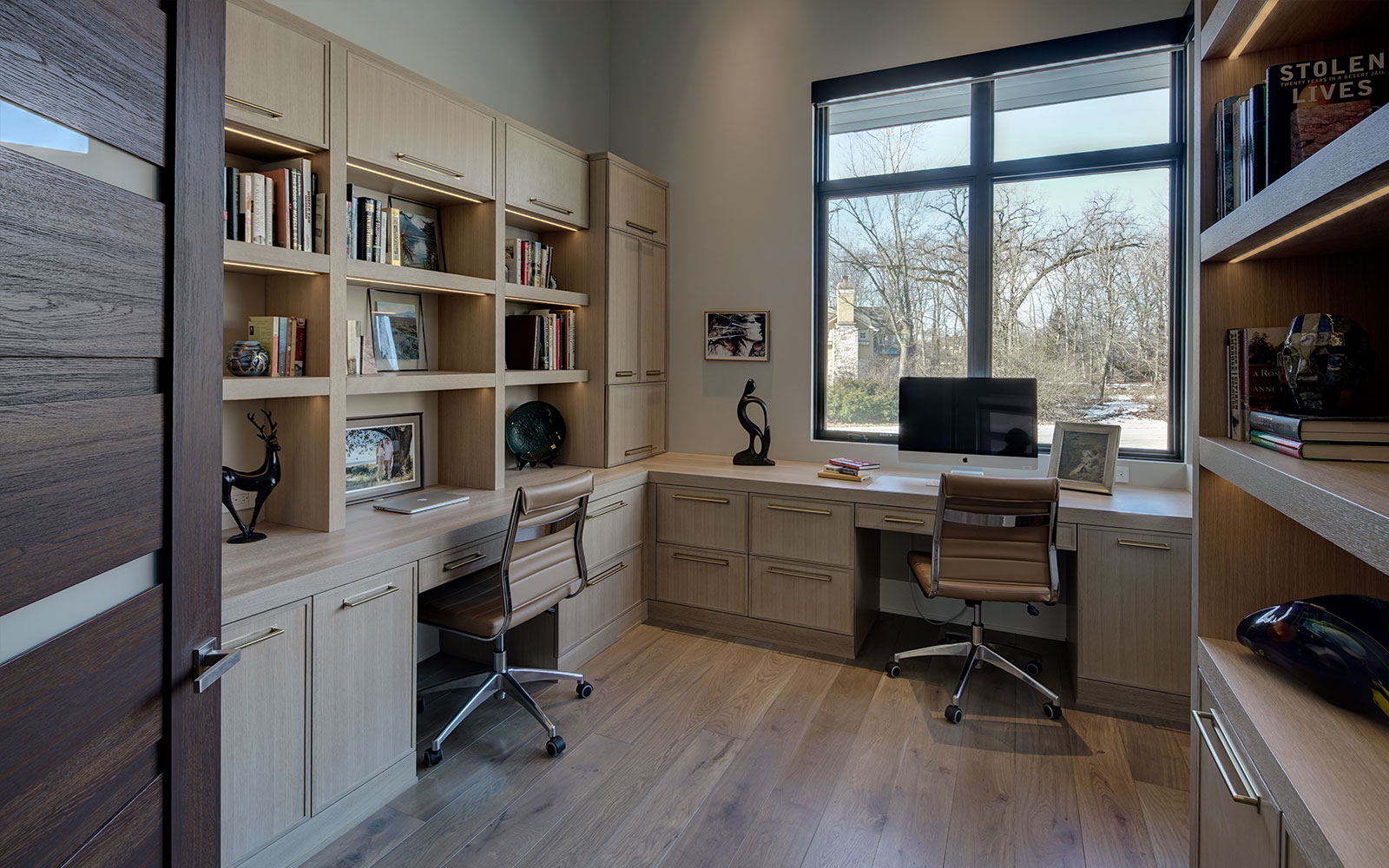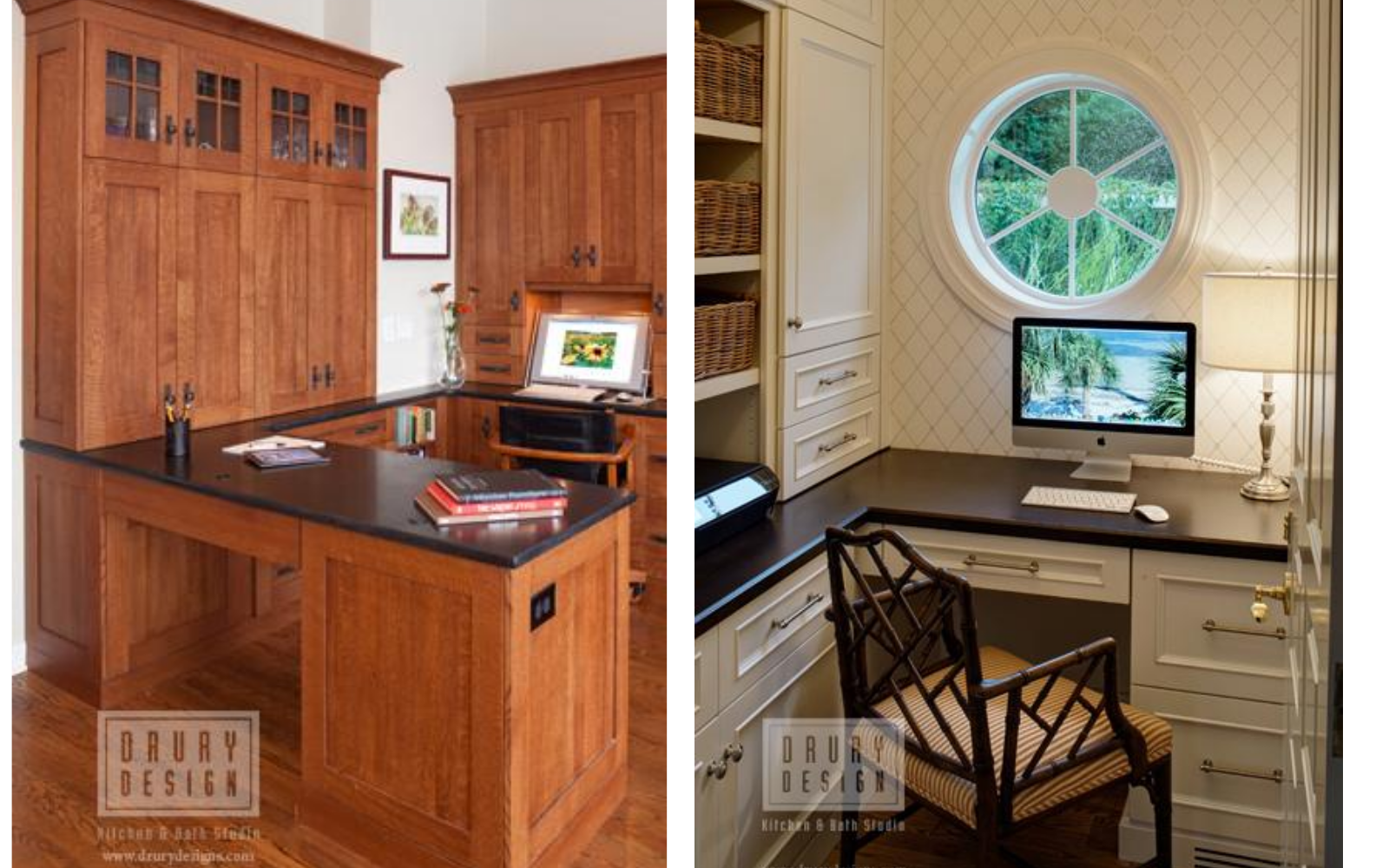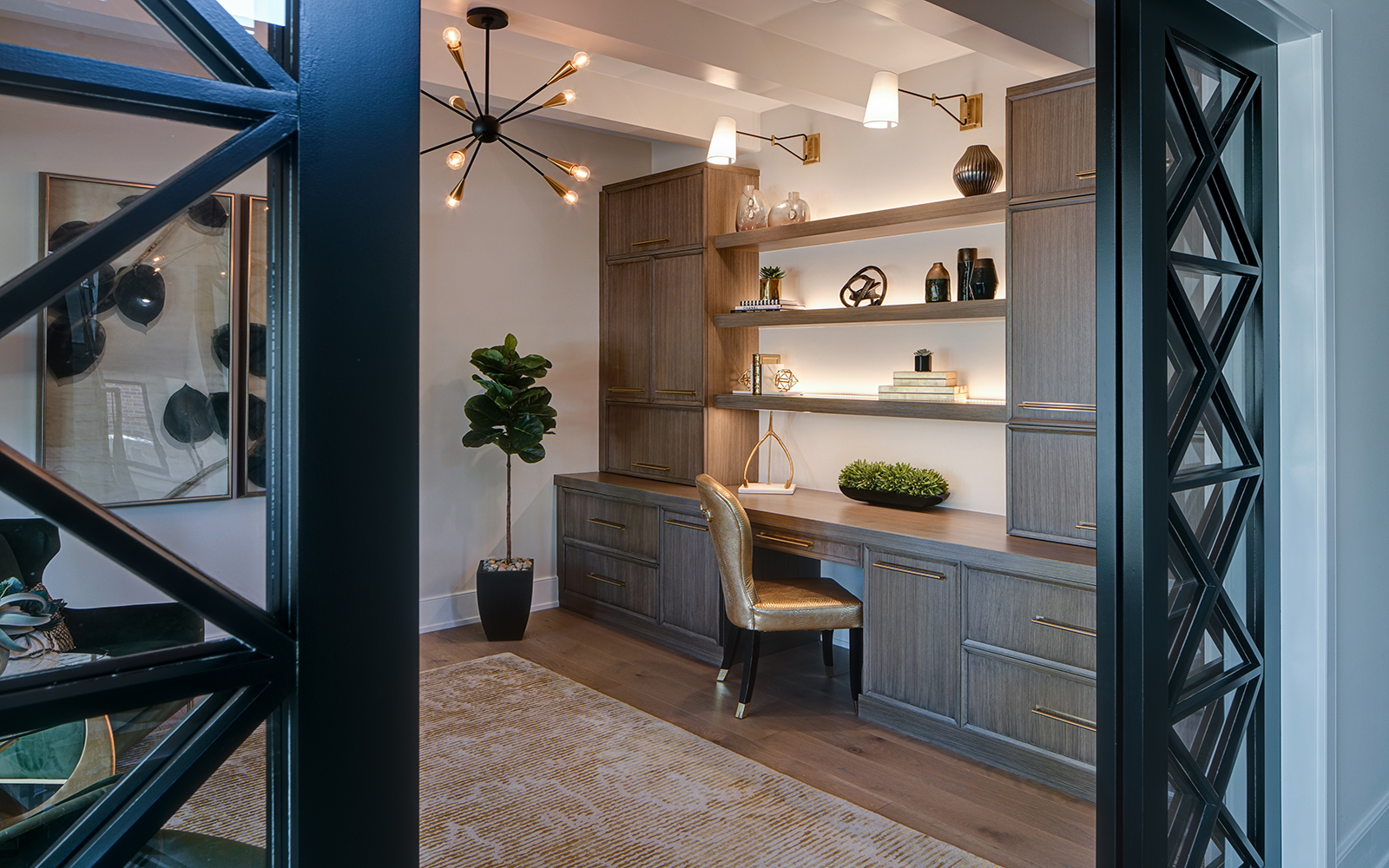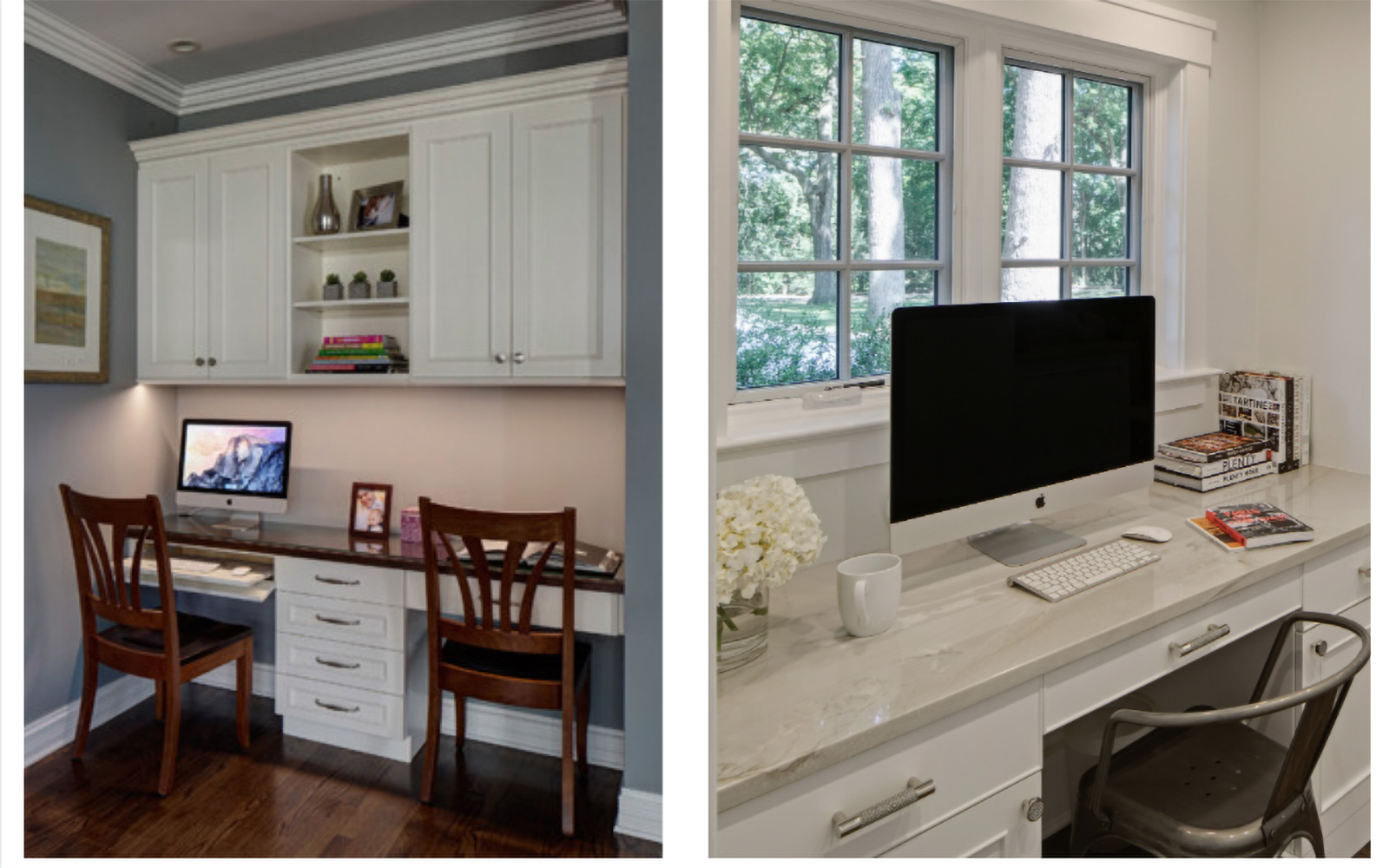Tips for Designing a Home Office
Tips for Designing a Home Office
The line between working in and living in our homes has become less distinct – for all family members. And for this reason, more and more people want to have a , whether it’s a simple for taking care of household business, a spot for the inevitable papers from school or the , or a dedicated spot for homework and studying.
The sudden and unexpected shift to for many Americans has put a premium on walls, doors, and extra as millions search for a quiet and comfortable place to . A new survey from Zillow® found a majority are making do without a dedicated for now, and many say they’ll consider a move to a with more if working remotely becomes a long-term reality.
A well-designed area can provide a that encourages productivity and reflects the of the rest of your . Finding can be a challenge. If you’re fortunate to have a spare , it’s easy to locate an there. However, all too often, you’ll need to borrow from an existing – diplomatically, so as not to disturb the ‘s original purpose. A common spot is a corner of a kitchen or family . The advantage is that the is not separated from the day-to-day activities in the house; it also allows parents to monitor children’s Internet usage. We are seeing more and more emerge as workers continue their days remotely.
Working from is exciting because it offers an opportunity for real comfort and efficiency, but if the is too casual, or isn’t effectively separated from the environment, peak productivity may be lost. While comfort is essential in any , an that is too casual may seriously impede the ability to get things done. You have to find a way to separate yourself from the rest of the goings-on in the and to convey a sense of “off-limits” to all other normal and natural sounds and interruptions.
A distinction has to be made regarding the physical boundaries of this working . The most effective way to do that is with the of the itself.
The Rise of Resimercial In The Modern
“Resimercial” originally referred to bringing a residential feel to commercial spaces in an effort to make employees feel more at in the . With the rise of -at- during the time of COVID-19, resimercial has evolved to mean investing in higher quality and/or commercial for the environment.
The benefits include:
1. Quality cabinetry that will stand up to daily wear and tear
2. Designed with organization in mind
3. Built-in accessories to keep your neatly organized
4. Increased productivity
5. Customization options such as heights, color, material, shape, privacy panels, and storage options.
Designing a W
Some experts have said that there are only two essentials for a functional : a comfortable chair and a door that closes. For most people, though, there are probably a few more requirements. Basic elements of designing a include smart planning, adequate lighting, and sufficient storage. When thinking of the or study station, also consider functionality and inspirational comfort.
Start with your surface. Stock units come in a variety of materials, but may be difficult to fit in your . Modular is more flexible and is available in a number of styles. Flea market finds and antiques can be turned, with some judicious changes, into acceptable elements.
If you’ll be spending a lot of time working in the , make sure to choose a chair with an adjustable seat and armrests to protect the spine and help reduce aches and injuries.
Where to Place Your
Along with the other issues already mentioned, don’t forget about a crucial piece of your . Your will need to suit your , fit your budget, and complement your . Some considerations in choosing your include the location of the in your , and whether or not you need for multiple monitors, monitor stand(s), and a keyboard drawer.
Traditional
A simple straight-forward is ideal for small spaces, if you prefer a minimalist , or if you’re just starting and don’t have the budget for . A table can even , although a with drawers offers storage to keep your clutter-free.
While you can put your against a wall, in many cases, regular desks can be placed almost anywhere, including in the middle of the , perpendicular to a wall, or in front of a window. If your is in a bedroom, you can put the in the closet.
With Hutch or Shelves
If you don’t have a lot of , but still need something to keep all your tools and resources close, a with a hutch or bookshelves is a good option. Like the traditional straight , a with a hutch can take up little , while offering more function.
Because desks with hutches take up vertical , they’re usually placed against a wall. If you need the features of a hutch but can’t afford a new one, consider buying an inexpensive bookshelf to set on your , or hang shelves over your .
L-Shaped
If you like to spread out or need many resources within reach, an L-shaped is a good option. An L-Shaped can sit in the corner to use up just a little , or you can be creative, placing the like a V in the . Or you can set the perpendicular to the wall, in which case you can have a bookcase or shelves along on the wall, creating a U-shaped area.
If you can’t afford to buy an L-shaped , you can create your own using a table and an existing , or buying two desks from the thrift shop.
T-Shaped
T-shaped desks are ideal if you have a partner or spouse you’re building your business with, or need two stations. A T-shaped can also have bookshelves or a hutch at the top of the T, giving you even more storage.
While you can create your own, using two desks at the top of the T, and two desks along the stem of the T, this can take up more , and be more costly.
U-Shaped
If you want a complete command center, a U-Shaped is a great option. A U-shaped takes up a lot of , so it’s best in a larger . The benefit is that you essentially get three areas. If you need multiple monitors, but also, to on non-computer activities, a U-shaped can provide that. With a simple turn of your chair, you can switch your workstation. U-shaped desks can be expensive, but you can create your own buy putting desks and tables you already have or found at the local thrift store together in a U-pattern.
Galley
The galley is essentially two desks laid out parallel to each other. It offers similar benefits that the U-shaped does in that you can swivel to at one station or the other. It’s easy to create a galley with two desks or a and regular table or buffet table.
Standup
Research suggests that a sedentary lifestyle is detrimental to your health. One solution to sitting all day is to get a . A often has all the features of a traditional , such as a keyboard drawer and monitor stand, but it’s at a height that has you standing to . With that said, other research suggests that standing all day isn’t necessarily good either. In that case, you can get an adjustable -top stand, which allows you to sitting or standing.
Essential Details
Make a list of everything you need, from pencils and paper clips to research materials and file folders. Pick a color scheme and purchase the necessities in your favorite palette. Measure all the electronic equipment you’ll require to determine where it will fit best. And make sure you add some favorite framed photos or artwork to inspire you. To create softness and texture underfoot, layer on an area rug to anchor your .
Light It Up
Natural light is great, but you’ll need ambient and task lighting as well. Here is another opportunity to add a bit of personal to your via lampshades, crystals, and fixture finishes. Watch out for the possibility of glare, especially when finding a place for your computer screen.
If your doesn’t have a door, you can establish a sense of privacy by the way you orient your surface or by using a screen or file cabinets to mark off the area. An organized and visually appealing area can help you feel more productive – and more relaxed.
Commit to your S
For those of us who don’t have a – which is a lot of people – -from- routines can easily get derailed. Designating an area for , even if that place is the bill-paying area in your kitchen, is a way to stay in your routine and get yourself in the mindset. Whatever spot you choose, just make sure it feels like a dedicated and functional area. That means adequate lighting, a comfortable chair – the right height for typing without strain – a seamless tech setup that allows you to take and make video calls without having to fiddle with plugs or wires, and an overall lack of clutter on your and the surrounding area.
Don’t Sacrifice Form for Function
Your , shelves, and storage should serve you, not the other way around. Consider your workflow and what items you need at your fingertips before investing in , and then look for pieces that are both beautiful and functional.
should complement other rooms in your house instead of screaming “soulless cubicle.” If your has traditional , warm wood and soft, comfy chairs or a loveseat are ideal if you have the . A contemporary can feature artistic pieces or modern metal .
Declutter
This seems obvious, but let’s level with ourselves. When do we really get around to cleaning our desks? Well, now’s the time. Toss anything that needs to be thrown out, pair like items with like, contain those stray pens in one nice decorative cup, and make sure you have all your workday essentials close at hand and non-essential items moved elsewhere.
Curate an inspiration board
Now that you’ve set the stage, it’s time to look ahead. And that wall you’re looking at beyond your laptop should inspire you. This is as good a time as ever to put together an inspiration board and fill it with what makes you happy, from images of your favorite people and pets, to pictures of your goals (like that fabulous vacation you are going to take once we’ve all gotten through this tough time!). And yes, you can put your to-dos and important reminders up there too – but keep the focus on the positive and uplifting, and keep it right in your line of sight.
Do a background check
If video calls are part of your new day-to-day, think about what your colleagues are seeing behind you – like that pile of laundry or those mostly empty wine glasses. Keep things clean and uncluttered. And if you have the , show off your . Some good background options might be your favorite art piece, interesting souvenirs, or a not-overly-stuffed bookcase. Lastly, remember lighting: Your should be adequately lit, or it’ll look like you’re dialing in from a submarine.
Set the mood
Never got your dream ? This is your moment. We bet scented candles aren’t allowed in your regular , but you get to make the rules at . Aromatherapy diffusers are another option if you’re worried about curious kids or pets. And now your playlist can softly waft overhead rather than through earphones. Similarly, set out some healthy snacks to avoid refrigerator trips, and nosh away. It’s okay for your to feel like your , and especially now, it’s important to take time to indulge yourself with some creature comforts that feed your soul and make you feel calm and inspired.
How would you sum up the concept of ?
Make the your own. Ensure that the reflects your personality and that you enjoy being there. Ensure that your reflects you and that it contains a favorite object or photo that will give you the break you need when you pause in your . It is these small touches that help you make the your own.
Your should be a connection to yourself, your spirit, and your productivity. It should afford focus rather than distraction and be a place you want to be and want to spend time in. That will positively influence you in the and enhance the you do there.
Wondering how your ideas and goals for your space might look when designed by one of our Certified Professional Kitchen Designers? To get started, we’d love to send one of our qualified professional designers to your home and explore the options with you. Contact us HERE or chat with us below to find out more.
About Drury Design Kitchen and Bath Studio
Founded by Gail Drury, CMKBD in 1987, Drury Design’s Client Focused Design™ approach integrates design recommendations, materials selection, and construction management into one seamless customer design, project management, and build experience. For kitchen, bath, and home remodeling ideas view Drury Design’s design portfolio or stop by the studio at 512 N. Main Street in downtown Glen Ellyn, Illinois.




